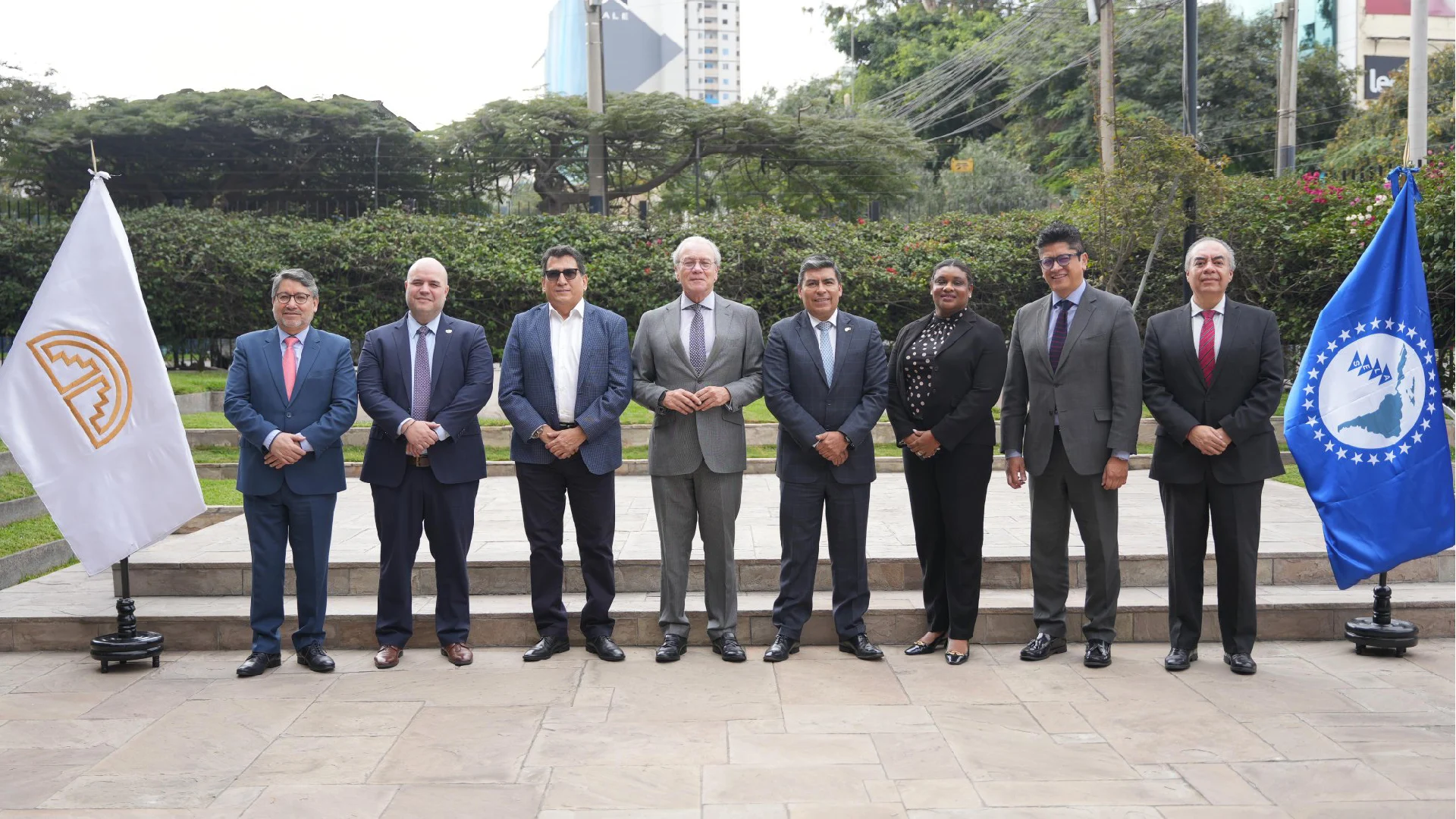
1. On the occasion of the Seminar “Integration within integration: new paths for synergy in the region,” held in Lima, Peru, the Permanent Secretary of the Latin American and Caribbean Economic System (SELA), the Secretary General of the Andean Community (CAN), the representative of the General Secretariat of the Association of Caribbean States (ACS), the delegate of the General Secretariat of the Latin American Integration Association (ALADI), the representative of the Central American Integration System (SICA), the representative of the Community of Latin American and Caribbean States (CELAC) and the representative, as an observer, of the United Nations Food and Agriculture Organisation (FAO), carried out the analysis and evaluation of the progress and results achieved in the inter-secretariat work during its first phase, which was successfully developed during the 2022, 2023, 2024 and 2025 terms and resulted in the proposal for the book entitled with the same name.
2. The high authorities of the integration mechanisms noted with satisfaction the progress made in the process of deepening regional integration within the framework of inter-secretariat work, which takes an open and balanced approach to the agendas of each organisation in the political, social, economic and environmental spheres. Recognising that this is the path that contributes to effective and constructive cooperation, together with the possibility of convergence of agendas, which will enable the implementation of common policies and strategies relating to the sustainable development of the region.
3. They reaffirmed the need to continue promoting cooperation and convergence among the various regional actors, with the aim of encouraging economic, political, social, and cultural integration through the exchange of experiences and joint work in the areas of food and nutritional security; productive chains; disaster risk reduction and climate change adaptation; sustainable energy and electrical integration; and cross-border cooperation and infrastructure. In addition, they highlighted the relevance of incorporating other issues, such as migration, human mobility, health self-sufficiency, security, and the fight against transnational organised crime, into the agenda of the inter-secretariat work.
4. They recognised the usefulness of the tools designed for inter-secretariat work, both in terms of the reports on the face-to-face seminars as well as the Regional Convergence Matrix (MCR) and diagrams that allow for a better understanding and visualisation of the programmes and policies being developed in the region through integration mechanisms, which were reflected in the proposed book entitled: “Integration within integration: new paths for synergy in the region.”
5. The Secretaries and Representatives of regional integration mechanisms reaffirmed their commitment to continuity and strengthening of joint efforts to advance the development of a regional agenda for integration and cooperation aimed at achieving effective results through productive and ongoing dialogue, with full respect for the sovereignty of people and their economic, social, and cultural diversity. This will be achieved through the approval of a new calendar of technical meetings and thematic seminars, the updating and refocusing of the MCR, and the approval of the publication of the book “Integration within integration: new paths for synergy in the region”, which, among other topics, offers a reflection on the future prospects of inter-secretariat work in our region, highlighting the possibilities for expanding the convergence model to new sectors and areas of collaboration.
6. Finally, the issue of financing emerged as a critical issue, making it clear that the sustainability of the initiatives depended on the ability to secure sufficient resources to continue the work. Against this backdrop, there was consensus on the need to identify potential sources of financing, whether public, multilateral or mixed, in order to ensure the continuity of the proposed initiatives.
